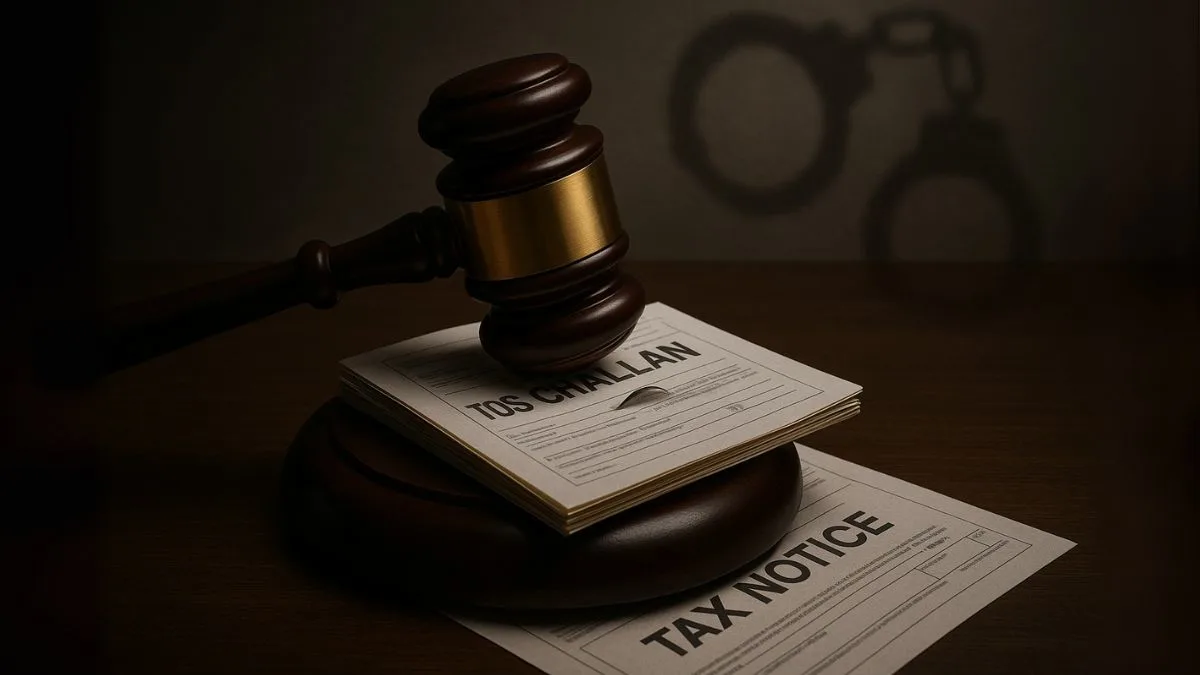
The Indian Income Tax Act has several provisions to ensure tax compliance, & one of the most crucial among them is Section 276B. This section specifically addresses cases where a person fails to pay to the credit of the Central Government taxes that have been deducted at source.
In simple terms, if you have deducted Tax Deducted at Source (TDS) from payments like salaries, interest, rent, or professional fees, you must deposit it with the government within the prescribed time. Failure to do so is treated as a serious offence.
What Section 276B Says
Section 276B of the Income Tax Act clearly states:
"If a person fails to pay to the credit of the Central Government under Chapter XII-D or XVII-B the tax deducted at source by him as required by or under the provisions of the said Chapters, he shall be punishable..."
This means the law directly penalizes non-payment of TDS after deduction. Even if you deducted the amount but did not deposit it, you can face prosecution.
Offences Covered Under Section 276B
The section not only covers TDS defaults but also connects with broader tax offences. Some of the key situations include:
- Failure to pay tax to the credit of the Central Government under Chapter XII-D or XVII-B.
- Punishment for non-payment of TDS after deduction.
- Offences of filing false income tax returns that conceal TDS liability.
- Misappropriation of deducted tax for personal or business use.
Punishment Under Section 276B
The punishment provisions are strict to ensure compliance. If a person is found guilty:
- Imprisonment – Minimum of 3 months which may extend up to 7 years.
- Fine – In addition to imprisonment, a monetary fine is also imposed.
This makes Section 276B one of the more serious tax default provisions because it involves criminal prosecution.
Also Read: Understanding Additional Depreciation for Businesses
Exemption from Prosecution
While the law is strict, there are situations where the Income Tax Department may grant exemption from prosecution for failure to pay tax deducted at source.
For example:
- If the taxpayer can prove that the failure happened due to genuine hardship or unavoidable circumstances.
- If the taxpayer has subsequently paid the TDS along with applicable interest & penalty before prosecution proceedings are initiated.
Such relief, however, is discretionary and decided based on the merits of each case.
Relation to TDS Compliance
TDS is one of the primary ways in which the government collects tax revenue throughout the year. The provisions under Chapter XVII-B lay down the responsibility of deducting tax at source and depositing it within the due dates.
Section 276B ensures that deductors fulfill this duty. Non-compliance directly impacts the government’s cash flow, hence the severe penalties.
Case Laws Under Section 276B
Courts in India have dealt with multiple cases involving this section. Common findings include:
- Even if the TDS amount is small, non-payment is still an offence.
- Directors and responsible officers of a company can also be prosecuted.
- Delay in payment without reasonable cause has resulted in convictions.
Example: In certain cases, courts have reduced punishment where the taxpayer could prove immediate payment after default & lack of criminal intent.
Difference Between Section 276B and 276BB
While Section 276B deals with failure to deposit TDS, Section 276BB covers failure to pay tax collected at source (TCS). Both involve criminal liability, but the nature of tax (TDS vs TCS) is different.
Why This Section Is Important for Businesses
Businesses act as intermediaries for collecting and depositing TDS. If they fail in this responsibility:
- They not only pay interest under Section 201(1A) and penalty under Section 271C, but also face criminal prosecution under Section 276B.
- This can harm their credibility and lead to legal consequences for directors & partners.
Practical Example
Let’s say a company deducts ₹50,000 as TDS from salaries in April but fails to deposit it with the Central Government by the due date. Even if the company pays the amount later, the delay may still trigger prosecution under Section 276B unless satisfactory reasons are provided.
Also Read: Section 49(1) of Income Tax Act – Cost of Acquisition Rules
How to Avoid Prosecution Under Section 276B
To stay compliant:
- Deduct TDS at the correct rate.
- Deposit the TDS within the due date.
- File quarterly TDS returns accurately.
- Maintain proper documentation to justify any delay.
Conclusion
Section 276B of the Income Tax Act plays a vital role in ensuring TDS compliance. It acts as a deterrent against misuse or delay in depositing deducted taxes. Businesses, individuals, and organizations must prioritize timely payment to avoid punishment for non-payment of Tax Deducted at Source (TDS) & possible criminal proceedings.
💡 Pro Tip: If you’ve missed a TDS payment or are unsure about compliance, seeking professional help immediately can save you from prosecution.
Click here to explore how our experts at Callmyca.com can help you avoid TDS defaults, manage compliance, and stay stress-free from legal troubles.











